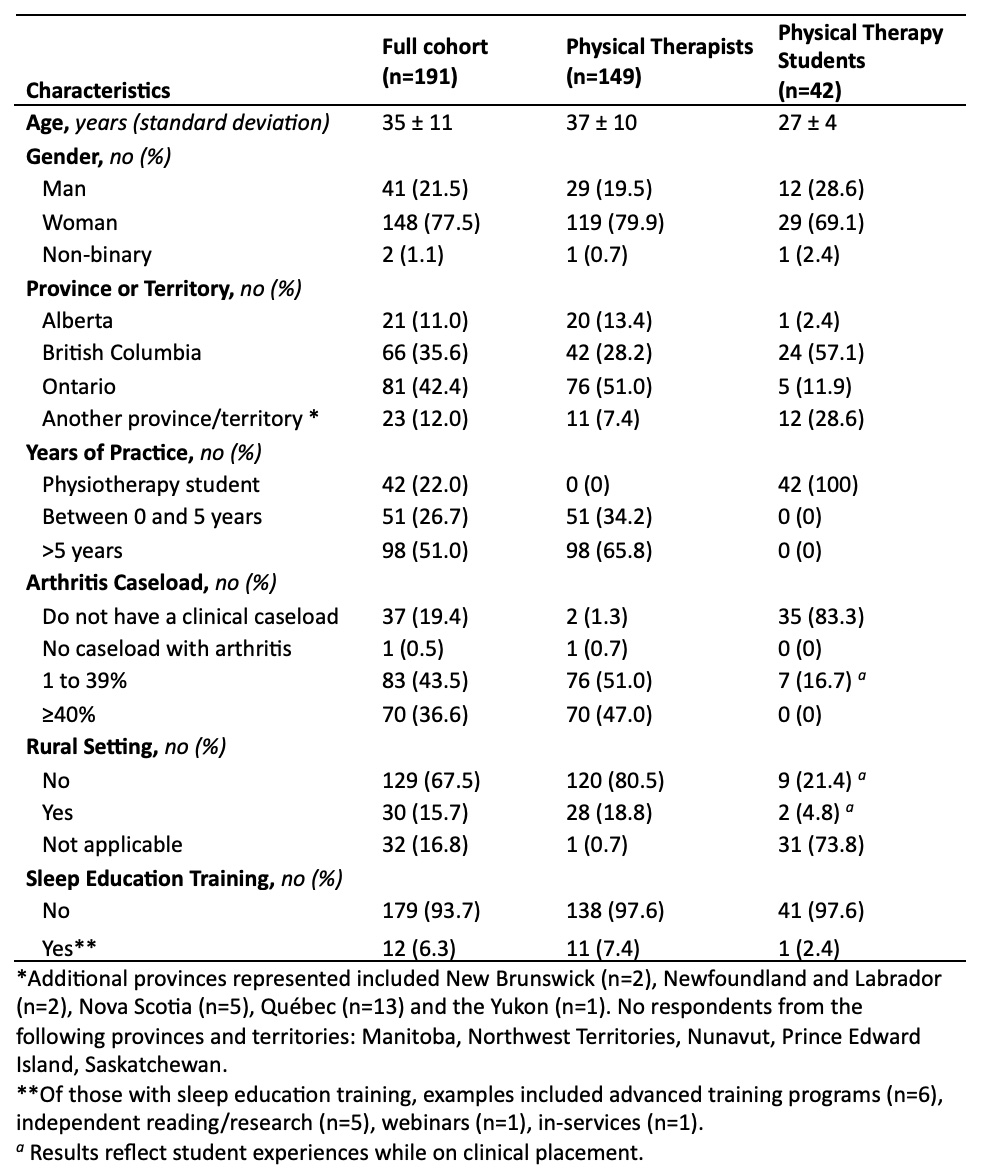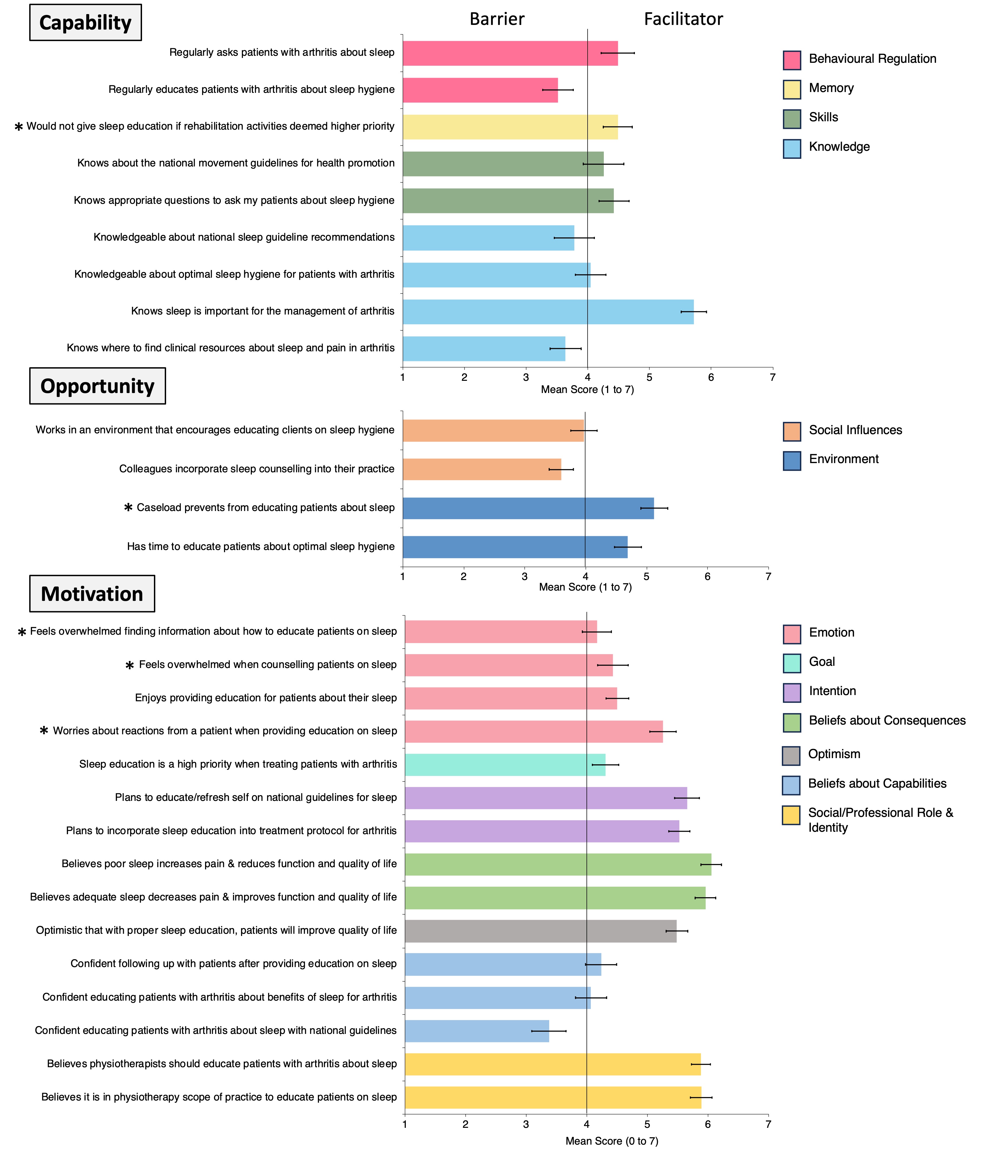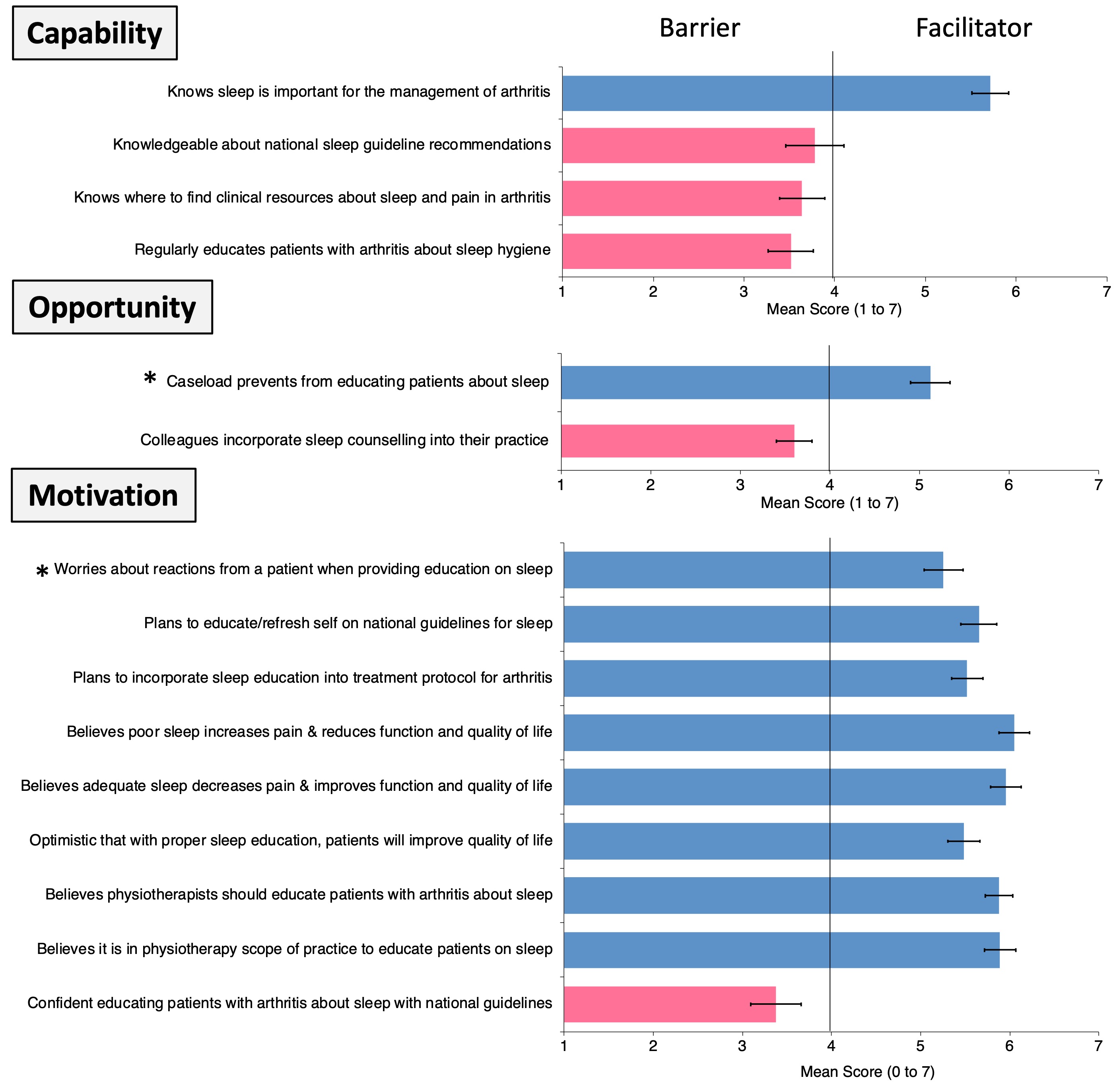Session Information
Date: Monday, November 18, 2024
Title: Vasculitis – Non-ANCA-Associated & Related Disorders Poster III
Session Type: Poster Session C
Session Time: 10:30AM-12:30PM
Background/Purpose: Individuals with arthritis face challenges in balancing activity, rest, and sleep. While physical therapists address activity, sleep considerations are often overlooked, despite evidence suggesting better sleep improves treatment outcomes. The purpose was to investigate facilitators and barriers for physical therapists and physical therapy students incorporating sleep in practice.
Methods: We conducted a self-administered electronic survey among physical therapists and physical therapy students in Canada. The survey included 28 items (7-point Likert scale) mapped on the Capability-Opportunity-Motivation-Behaviour (COM-B) system and Theoretical Domains Framework (TDF). We report means (95% confidence interval) and identified facilitators (mean >5/7) and barriers (mean< 4/7) by item. We also conducted sensitivity analyses evaluating responses separately for students and clinicians, by excluding students and those without clinical caseload, then only evaluating those with caseloads >40% of patients with arthritis.
Results: Between January-November 2023, 216 responded, and 190 (88%) completed the survey (148 physical therapists; 42 students). Mean age was 35 (±11) years (Table 1). Most delivered in-person care (67%) in urban settings (67%). Few had previously pursued education focused on sleep counseling (6%). Figure 1 displays all 28 survey items, categorized by COM-B attribute and TDF. Figure 2 highlights facilitators and barriers by COM-B attribute.
Facilitators (mean >5/7) included belief that physical therapists should provide patients with education on sleep (mean=5.88 [5.72-6.04]), sleep health is within practice scope (mean=5.89 [5.71-6.07]), optimism about its benefits (mean=5.49 [5.31-5.67]), belief that improved sleep leads to better health outcomes (mean=5.96 [5.79-6.13]), awareness of sleep’s importance in managing arthritis (mean=5.71 [5.51-5.92]), capacity to integrate sleep health within caseload (mean=5.12 [4.90-5.34]), plans to learn more about national sleep guidelines (mean=5.65 [5.45-5.86]) and plans to integrate sleep education into arthritis care (mean=5.52 [5.35-5.70]) (Figure 2).
Barriers (mean< 4/7) included being unaware of where to find sleep resources (mean=3.63 [3.39-3.89]) and lacking knowledge about sleep guidelines (mean=3.78 [3.46-4.10]) and lack of confidence in guiding sleep for patients (mean=3.38 [3.10-3.69]). Few reported providing sleep education for patients with arthritis (mean=3.52 [3.27-3.77]), or observing similar behaviours from colleagues (mean=3.60 [3.40-3.80]) (Figure 2).
Results were consistent across sensitivity analyses.
Conclusion: While physical therapists and students show positive perceptions about sleep health in practice, challenges remain for effective implementation. These findings can inform development of theory-informed behaviour change interventions to engage physical therapists in greater sleep integration in practice.
To cite this abstract in AMA style:
Primeau C, Bayraktar D, Kho M, Tong C, Li L. Challenges and Opportunities in Integrating Sleep Recommendations into Counselling Patients with Arthritis: A Survey of Physical Therapists and Physical Therapy Students [abstract]. Arthritis Rheumatol. 2024; 76 (suppl 9). https://acrabstracts.org/abstract/challenges-and-opportunities-in-integrating-sleep-recommendations-into-counselling-patients-with-arthritis-a-survey-of-physical-therapists-and-physical-therapy-students/. Accessed .« Back to ACR Convergence 2024
ACR Meeting Abstracts - https://acrabstracts.org/abstract/challenges-and-opportunities-in-integrating-sleep-recommendations-into-counselling-patients-with-arthritis-a-survey-of-physical-therapists-and-physical-therapy-students/



